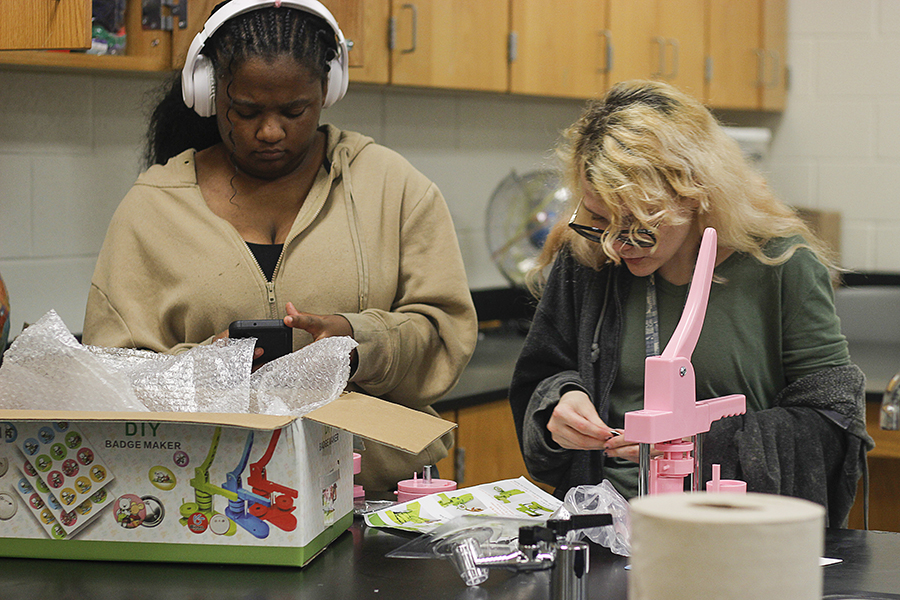There’s a symptom lurking in the minds of students. It starts slowly, but surely, it hits like an avalanche: stress.
According to Cross River Therapy in late 2023, about 61% of teenagers between the ages 13 and 17 feel stress over getting good grades.
This statistic is no surprise to senior Marry Sung, as she has faced mental health related problems involving her academics.
“My mental health has taken a toll since high school,” Sung said. “I never realized it, but in my freshman and sophomore year, I was so obsessed with getting A+’s that I would beat myself up whenever I would see a B or a simple A.”
Students like Sung, who are concerned with academics, often miss opportunities to participate in extracurricular activities that can make them stand out to colleges as noted by college and career counselor, Debbie Lewis.
“A lot of times, students worry too much about GPAs’ that they don’t have time to think about extracurricular activities, which can help them stand out to colleges,” Lewis said.
Extracurriculars and academics might work hand in hand, but there’s still the struggle for management. For student assistance counselor JoAnn McRae, the solution is simply balance.
“I think mental health to me is like your physical health, and it’s just as important as our physical health, also keeping a mental running tally of how your life is balanced,” McRae said. “There are four areas, like the things that are important in your life. Maybe it’s academics, family, work or a relationship. People can do a quick mental check about how life isn’t balanced, and we should have a way to kind of do checks and balances to see if we’re in a good place.”
If students feel as though they aren’t in a good area in their life, McRae suggests for students to talk as a coping mechanism.
“When we’re not in a good place, if we can, then we need to seek out help to talk to somebody,” McRae said. “If you are involved in church activities, or if you volunteer somewhere it’s always good to have a mental list of people you can trust. So make sure you have a picture of what’s important, and when you’re filling out a balance, have some trusted adults [to talk to].”
However, sometimes students happen to lose motivation in their studies, which McRae notes it’s important to reflect on their goals.
“[I would recommend to] revisit your prior self and your prior goals because sometimes people don’t see their original goal as being achievable anymore,” McRae said. “So then you have to be OK with who you are and be more realistic. Maybe change what the target was, and your perspective on what it is your goals were.”
McRae then explains if a student has failed, it’s important to find someone they trust to talk about their struggles.
“Sometimes people see [school as] very black and white,” McRae said. “You’re succeeding, failing and there’s so much in between. [When students don’t succeed, they often feel] defeated and deflated by [their] goals. When they have to re-motivate themselves, [they] need to talk to someone [they] trust, discuss things that are important [to them]. [Talking helps to] find a new perspective on what it is you really are wanting to achieve.”
For Sung, her motivation involves thinking about her family.
“My parents and where I come from, is Chin State, Burma.” Sung said. “My parents are immigrants and only had education up to high school, but never got their diploma,” Sung said. “Unlike the United States, China, Burma has limited education—where students have to travel miles in order to go to school or would not have schools in their villages at all.”
Sung says her parents motivate her to do better in school.
”Most parents choose not to send their kids off to school at all,” Sung said. “My schoolwork is a daily reminder that I should be grateful for having access to education because there are other kids who do not have the same opportunities as me.”
Sung also has her strategy for completing her schoolwork with limited stress.
“My schedule for getting work done consists of finishing up any assignments I have due and automatically studying further on topics I did not understand in class,” Sung said. “I always try to write the notes before we cover them in class, so that I can get a grasp on what we learn.”
It’s with these strategies in which students can succeed with limited stress.
“It is important that you take care of yourself,” McRae said. “To find time to be in a stress free environment and that you’re not caught up in putting too much stress on yourself.”



!["I hope to become fond [of] and understand the new dynamic of a life where I don't really have boundaries set by another person, but rather more of a liberal freedom."](https://farhar.net/wp-content/uploads/2025/05/topten9.jpg)









!["Learning is a really important aspect of high school – that's why we're here. I think the whole top ten thing can also encourage somebody [to] focus on grades and not the actual learning."](https://farhar.net/wp-content/uploads/2025/05/topten6.jpg)






